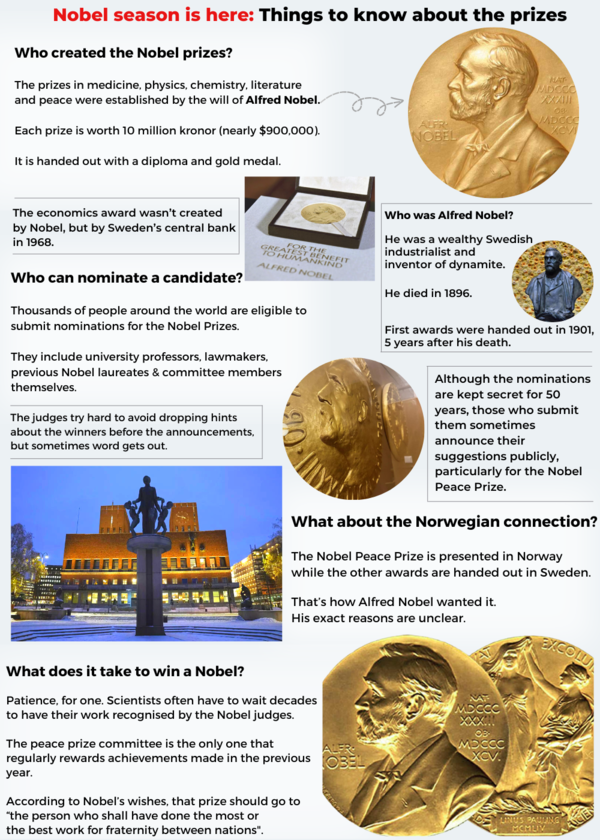The Nobel laureates in physics have conducted groundbreaking experiments using entangled quantum states, where two particles behave like a single unit even when they are separated. The results have cleared the way for new technology based upon quantum information.
While physicists often tackle problems that appear at first glance to be far removed from everyday concerns — tiny particles and the vast mysteries of space and time — their research provides the foundations for many practical applications of science.
Intense research and development are underway to utilise the special properties of individual particle systems to construct quantum computers, improve measurements, build quantum networks and establish secure quantum encrypted communication.
Last year the prize was awarded to three scientists — Syukuro Manabe, Klaus Hasselmann and Giorgio Parisi — whose work has helped to explain and predict complex forces of nature, thereby expanding our understanding of climate change.
A week of Nobel Prize announcements kicked off on Monday with Swedish scientist Svante Paabo receiving the award in medicine for unlocking secrets of Neanderthal DNA that provided key insights into our immune system.
They continue with chemistry on Wednesday and literature on Thursday. The 2022 Nobel Peace Prize will be announced on Friday and the economics award on October 10.
The prizes carry a cash award of 10 million Swedish kronor (nearly $900,000) and will be handed out on December 10.

The money comes from a bequest left by the prize’s creator, Swedish inventor Alfred Nobel, who died in 1895.
(with inputs from agencies)





